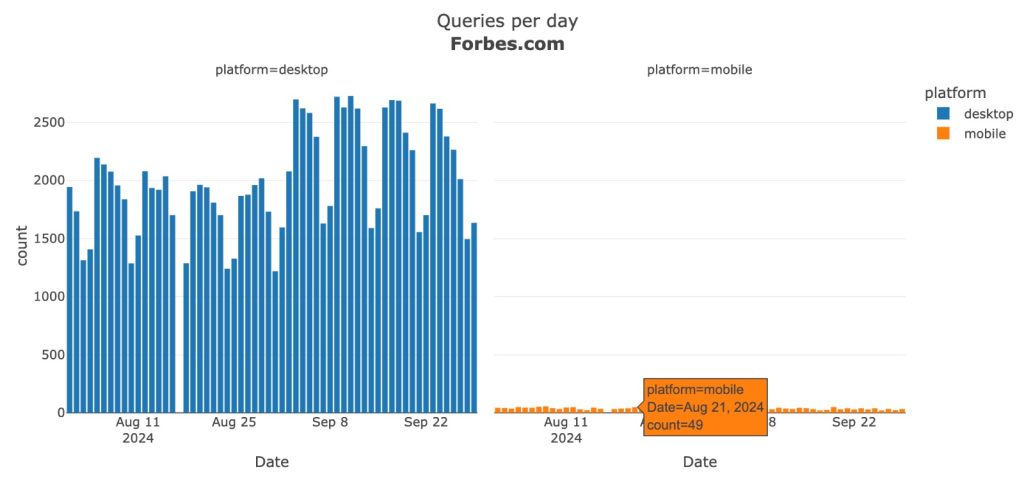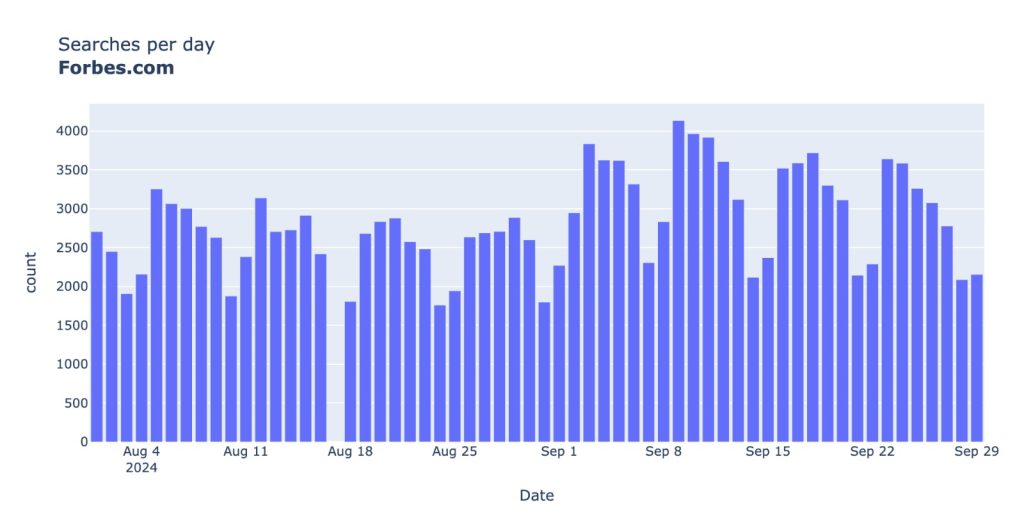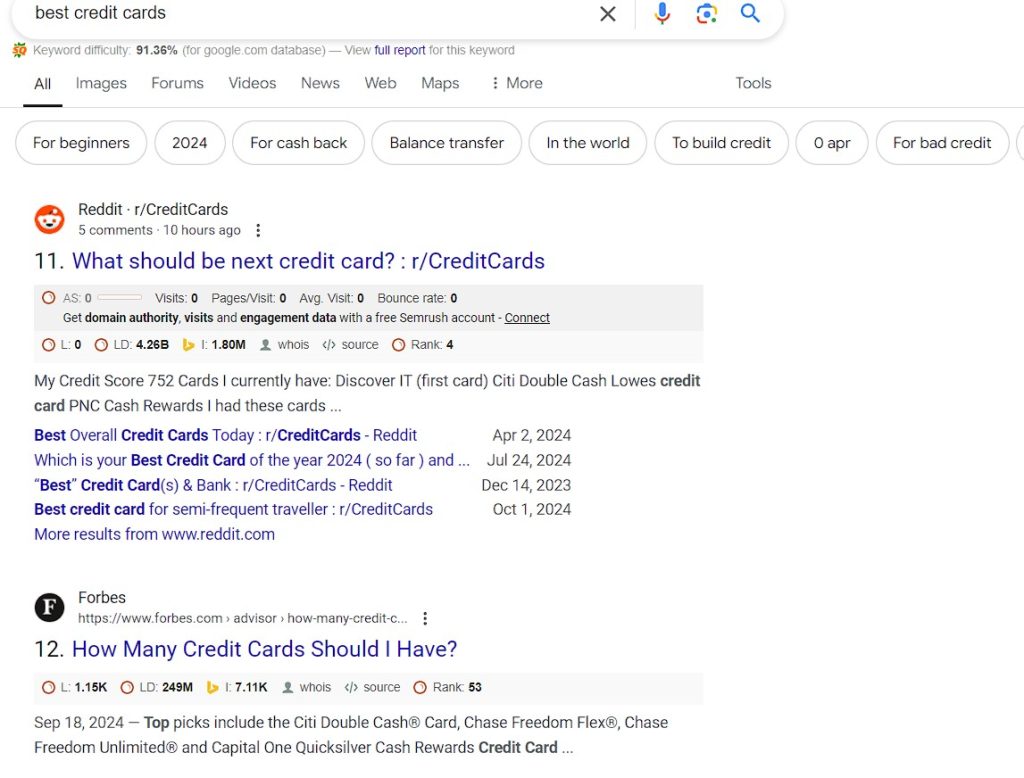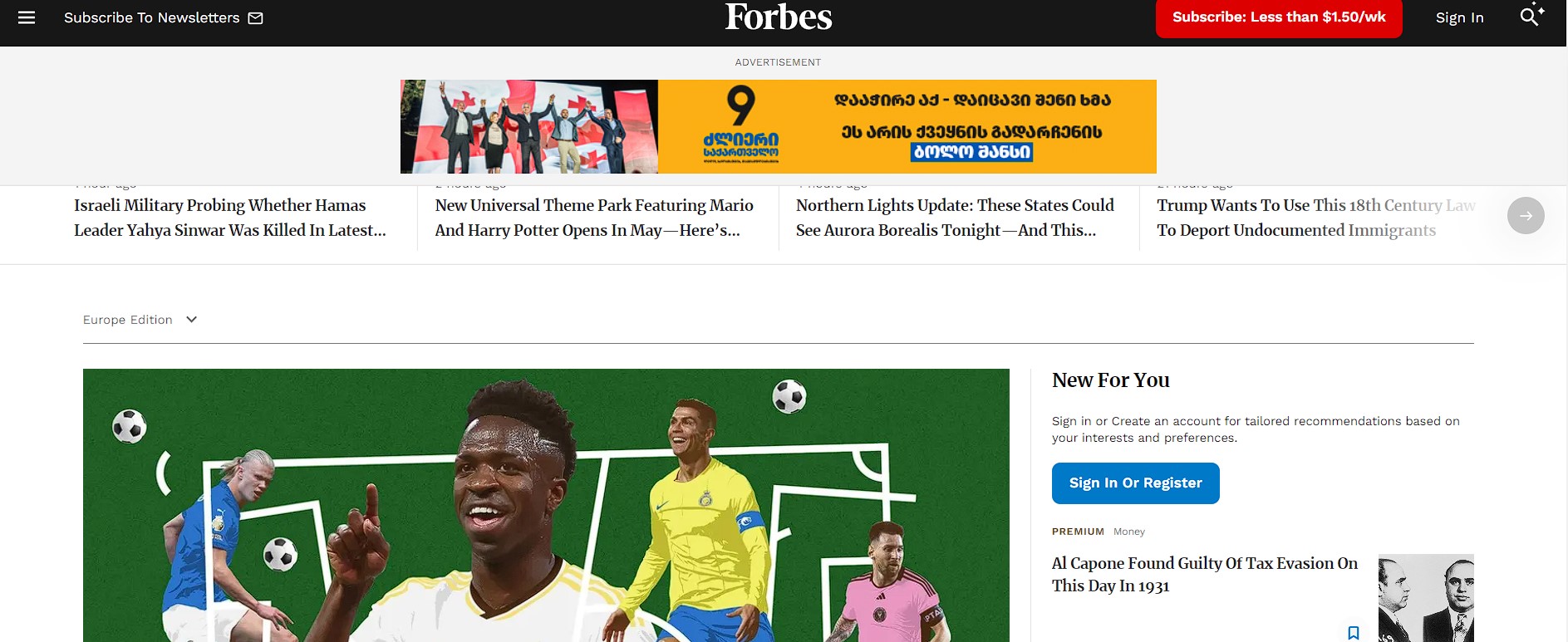At EA Eagle Digital, we leverage many technologies, including clickstream data and advanced technologies, but most importantly, help of our trusted data scientist, Elias Dabbas, the CEO of Advertools to process, analyze and visual the raw data provided by our click-stream source, . We’ve analyzed the raw clickstream data of Forbes.com to assess the actual decrease/increase in their organic traffic and used N-gram topical clustering to better understand which types of phrases have experienced the most significant decline/increase in organic SEO.
A few weeks ago, Lars Lofgren shared a viral blog post uncovering that a company known as “Forbes Marketplace,” also referred to as “Forbes Advisors,” had acquired a significant portion of Forbes.com. The goal? To leverage Forbes’ established brand and ranking signals to climb higher on Google. The post detailed how Forbes essentially rented out part of its website to an affiliate marketing company as a strategy to monetize through Google’s search engine.
A few days later, major keyword tracking tools recorded a drop in keywords for Forbes Advisor. Glenn Gabe, a well-known and experienced SEO expert who has long contributed valuable insights and analysis on broad core updates, weighed in on the situation. However, to truly understand what was happening with Forbes, we had to dig deeper, utilizing our clickstream data and processing it to uncover the real story behind the changes.
Clicks/Queries Per Day (Desktop Vs Mobile)

This visualization focuses on clickstream data from desktop devices, but as you can see, the mobile data is somewhat limited. Surprisingly, despite the recent keyword drop, Forbes’ organic traffic actually grew in September compared to August.
Clicks/Queries Per Day (Total)

As seen in the visualization above, Forbes’ overall traffic has remained very stable and even increased in September. However, keep in mind that the data accounts for both Forbes.com and not just Forbes Advisors.
Forbes Advisors Still Ranking Prominently, Despite Keyword Drops

Why Forbes Advisors Leveraged the “Forbes” Brand
Historically, Google has favored established brands over smaller publishers with valuable content. The rationale behind this is that users tend to trust brands more, leading to increased clicks and engagement. Over time, pages published by these brands often experience a boost in visibility.
A common practice within the SEO industry is known as Parasite SEO, which involves publishing transactional blog posts (primarily affiliate-driven) on trusted and well-known brands to capitalize on the site’s authority.
At EA Eagle Digital, we do not endorse Moz’s domain authority metric; instead, we prefer to think of it as a site authority score. This includes topic embeddings associated with a particular domain, a perspective supported by the Google leak shared by Erfan Azimi, CEO of EA Eagle Digital, with Rand Fishkin.
Is Forbes Impacted by a Manual Action?
Doesn’t seem so.
Historically, Google has favored established brands over smaller publishers with valuable content. The rationale behind this is that users tend to trust brands more, leading to increased clicks and engagement. Over time, pages published by these brands often experience a boost in visibility.
A common practice within the SEO industry is known as Parasite SEO, which involves publishing transactional blog posts (primarily affiliate-driven) on trusted and well-known brands to capitalize on the site’s authority.


